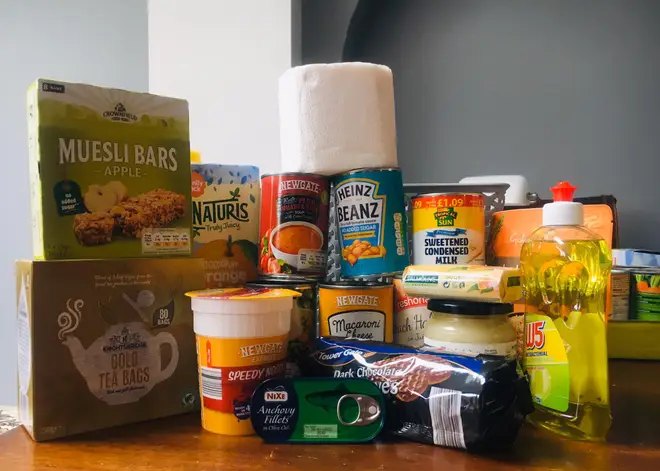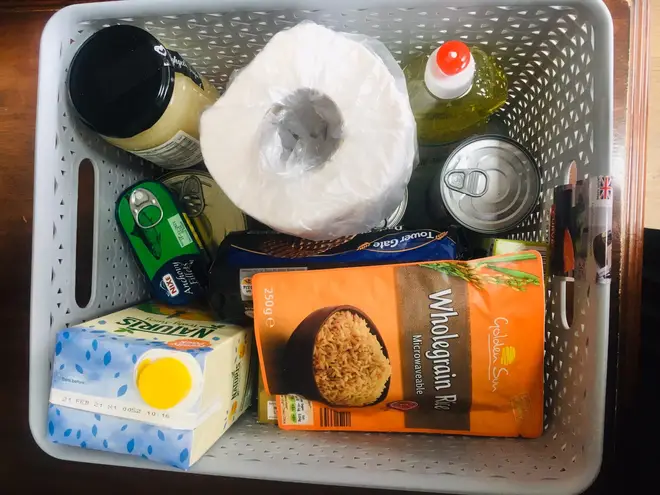
James O'Brien 10am - 1pm
26 March 2020, 10:16

Local groups are coming together across the UK to help those in need as the Covid-19 pandemic means many are forced to isolate themselves.
As the coronavirus pandemic spreads and more groups of people are told to self-isolate or distance themselves concerns have been raised over how the elderly of vulnerable will cope.
But communities are coming together to help out, WhatsApp groups have been formed, Facebook sessions organised.
A Covid Mutual Aid website has sprung up and more than 900 local groups have been formed across the country.
One group in Lambeth have been acting to ensure those most in need in society do not go without.
Under the name Lambeth Mutual Aid, the group says they aim to become a "voluntary reciprocal exchange of resources and services for mutual benefit."
Emma Lang founded a #covid19UK support group in Poole, Dorset. She told LBC News why she felt it was so important to bring her community together during the coronavirus pandemic pic.twitter.com/LLA4zliLRv
— LBC News (@LBCNews) March 18, 2020
Not only are the group collecting resources they are also collecting and delivering food packages. While some groups are running errands and shopping for vulnerable people or those self-isolating.
As well as practical support the groups are offering telephone calls with people who are self-isolating due to infection or increased vulnerability.
One volunteer has even offered their services walking dogs for those who are isolating or ill.
Hope Winter-Hall, a resident of Islington, London said: "I am a disabled person with a care package. I am self-isolating with my 92-year-old mother. We already know that social services and the NHS were overwhelmed before this virus hit. I am very well prepared for months of isolation but I will be needing help before it is over. Finding the Islington Mutual Aid group lifted our spirits and changed our view of the future."
One volunteer Frankie said the coronavirus outbreak made it more important than ever to pull together as a community.
She told LBC News: "This time is more important than ever to pull together as a community to help our most vulnerable, including our local businesses ."
But the group is also considering what will happen when the pandemic is no longer as prevalent, she said: "We still want to be a thriving area after this all calms down so we need to act now to help."
Frankie said her motivation for helping was concern the elderly of vulnerable might not be aware there is help out there, she said: "I’m helping because I know from in all areas across London and the rest of the country there are lots of elderly people that may not have Facebook or social media to hear about all of these groups of people pulling together to help, so it is imperative that this message is being communicated to them."

The message can be communicated to people who don't have social media by "calling up your neighbours , sending flyers , mentioning it to anyone around you is a good way to get this message about," Frankie said.
She added that any local food banks or charities already have this information but she encouraged people to try contacting them to see if they need extra support or specific things they need to be donated.
She said the Covid-19 pandemic could have an upside: "If one thing positive comes out of this hopefully it’s that amount of people willing to help support"
One of the Streatham volunteers, Afsha said they had been having problems getting some of the items they needed.
She said: "We’ve had difficulty trying to get hold of enough toilet rolls, UHT milk, formula milk, hand gels, nappies, if anyone has some items they can donate/we can buy of you that would be great."
Anna Vickerstaff, one of the coordinators of the national network, said: “No matter what we look like, where we live, or how much money we have, getting sick reminds us that at our core we’re all just human. And in every country it’s the old, the sick and those already struggling who will be affected worse.
"That’s why we set this network up - because we want to make sure that no one in our communities is being left to face this crisis alone, and because we want to try and redress some of the serious inequalities this outbreak will expose."